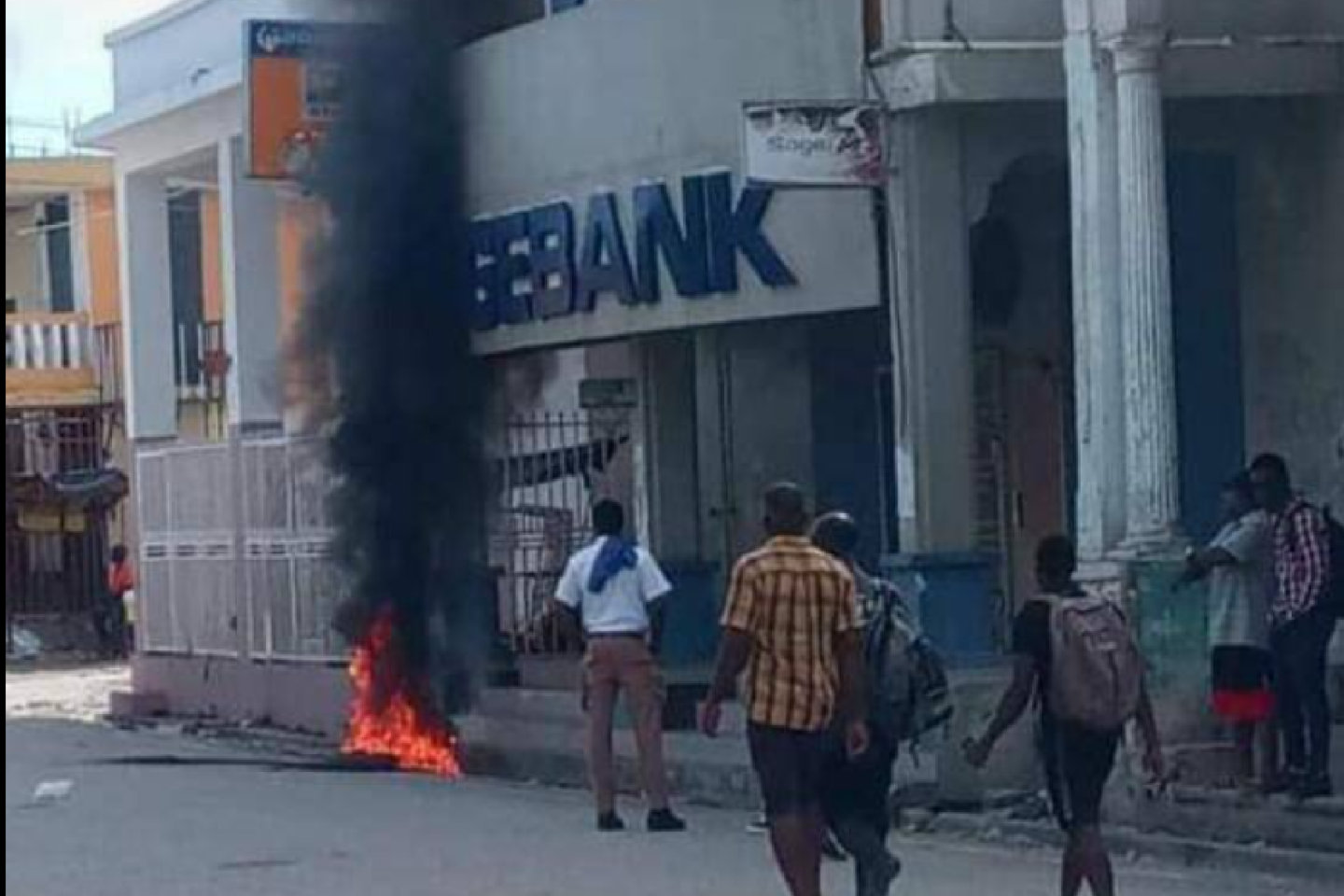Par Patrick Prézeau Stephenson
The political landscape in Haiti remains tumultuous, with the Presidential Transitional Council (CPT) facing internal conflicts that threaten its stability and effectiveness. As this crucial body navigates the complex terrain of transitional governance, the international community is closely monitoring its progress, ready with a contingency plan should the CPT fail. The need for a Plan B has been highlighted by recent events and statements from key figures such as Pierre Espérance, Executive Director of the National Network for the Defense of Human Rights (RNDDH), and retired American general Russell L. Honore.
The current situation
The CPT, established to guide Haiti through a period of transition, has been mired in internal conflicts that undermine its mission. The latest controversy concerns the appointment of Edgard Leblanc Fils as president of the CPT. The move, seen by some as a blow against the consensus of the April 3 agreement, intensified discord within the council. Espérance criticized this lack of consensus, warning that it undermines the legitimacy and effectiveness of the council.
On May 14, during an interview on Volcy Assad’s show “Le Rendez-vous”, Espérance underlined the urgency for the CPT to respect the April 3 agreement. This agreement sets out crucial steps for political stabilization and governance reforms. Failure to comply with this agreement, he warned, would lead to serious consequences, including the implementation of a Plan B by the international community.
General Honoré’s perspective
Retired Gen. Russell L. Honore, a figure close to the White House, also stressed the urgency of decisive action in a tweet. He called for immediate measures to stabilize Haiti, pleading for the appointment of a Prime Minister or the application of article 149 of the Haitian Constitution. His message was clear: the international community will not remain passive as the political crisis in Haiti worsens. Honoré’s call to “ direct, follow or clear » underlines the impatience and determination of international stakeholders.
The April 3 agreement
The April 3 agreement is essential for Haiti’s future, setting out a road map for the CPT to follow. It includes commitments to strengthen governance, ensure public security and prepare for democratic elections. Espérance insisted that respect for this agreement is non-negotiable. The CPT’s inability to honor this agreement endangers not only its internal cohesion, but also its credibility with international partners.
The nature of plan B
Although Esperance has not revealed specific details about Plan B, its alleged existence reflects the international community’s preparedness to intervene if the CPT fails. This alternative plan likely includes more direct international oversight or even replacing the CPT with a more effective governance body. The logic behind Plan B is to prevent the political vacuum and chaos that would arise from the collapse of the CPT, thus ensuring the continuity of governance and the continuation of necessary reforms.
The implications of plan B
Implementation of Plan B would mean a major change in Haiti’s political dynamics. It would indicate the loss of confidence of the international community in the ability of the CPT to govern effectively. Such an approach could include:
1. Appointment of an interim government : An internationally sanctioned interim government could be established to assume the transitional responsibilities of the CPT by applying Article 149 of the Constitution.
2. Increased international surveillance : Greater involvement of international bodies such as the United Nations or regional organizations to oversee the transition process and ensure compliance with reform mandates.
3. Strengthening security measures : Deployment of international security forces to stabilize the country and support the implementation of crucial reforms.
Conclusion
The possibility of implementing Plan B highlights the critical moment Haiti finds itself. The CPT must overcome its internal conflicts and respect the April 3 agreement to avoid triggering greater international interference. As Espérance and General Honore articulated, the time for decisive action is now. The CPT must focus on “major urgent projects” — the essential reforms and security measures necessary to pave the way for a stable and democratic Haiti. Failure to do so will not only jeopardize their current position, but also open the door for external actors to intervene and steer the country on their own terms.
References
[1] Daniel Zéphyr, 14/05/2024 There is already a plan B to replace the Presidential Transitional Council, according to Pierre Espérance | Gazette Haiti
[2] Tweet from:
Russel L. Honore’,
@ltgrusselhonore
Last edited3:25 PM · May 13, 2024
Contact Media Patrick Prézeau Stephenson: Editor [email protected]
But many loads are not heavy. Thanks for sharing the manifesto:
Visit the home page: https://shorturl.at/cozFM
Read online: https://shorturl.at/rBOTZ
Download: https://shorturl.at/zIR29







